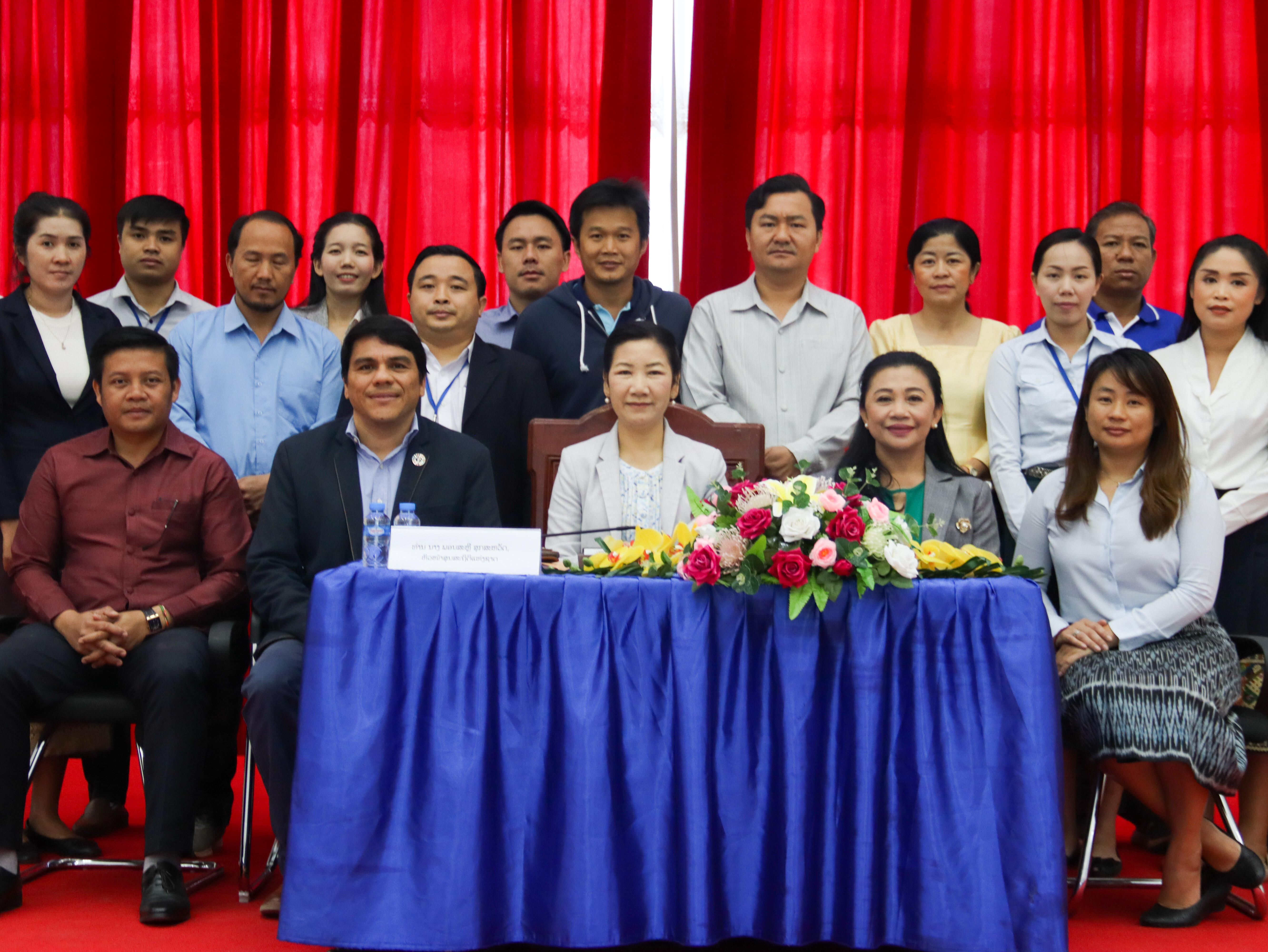Vientiane, December 16th, 2020. The Lao Statistic Bureau, the Ministry of Planning and Investments launched and disseminated the results of the Monograph Report on People with Disability in Lao PDR based on data from the 4th Population and Housing Census 2015.
With both technical and financial support of the United Nations Population Fund (UNFPA), Humanity and Inclusion (HI) and the Norwegian Ministry of Foreign Affairs, Lao Statistic Bureau led the disability monograph. The study findings clearly evidenced the fact that persons with disabilities have poorer socio-economic conditions and more limited opportunities compared to those without disabilities in Laos.
The Government of Lao PDR ratified the United Nations Convention on the Rights of Persons with Disabilities (UNCRPD), which spells out the human rights of persons with disabilities across sectors. Several strategies, policies and action plans targeting persons with disabilities - one of the most deprived groups - were consequently adopted over the past years in Lao PDR. Accurate disability data are crucial to inform policy-making by government agencies, to plan needs-based programmes targeting persons with disabilities.This Disability Monograph aims to provide national and local stakeholders with disaggregated disability data, but also tabulations comparing persons with and without disabilities on key social and economic characteristics.
In Lao PDR, more than 160,000 (2.77%) people live with a disability among the population aged over 5 years. Disability prevalence in Lao PDR is higher in remote geographical areas (3.33% in rural areas without roads, 2.86% in rural areas with roads, 2.48% in urban areas), and higher among diverse ethnic groups. Persons with disabilities aged over 10 had significantly lower labour participation and higher unemployment compared to persons without disabilities, in both rural and urban areas. Youth and Women with disability were particularly excluded from the education, vocational training and workforce.
The report identifies critical services to increase inclusivity, education, labour, social protection as well as disability related data to ensure persons with disabilities benefit from social, economic and environmental development in Lao PDR.
“The main purpose of this Disability Monograph is to sensitise the society in Lao PDR about the situation of persons with disabilities. Statistics is very useful for policy makers and planners in changing attitudes towards persons with disabilities as well as in developing equitable services for them. We are pleased to partner with UNFPA for the dissemination” says Ms. Phonesaly Souksavath, Head of Lao Statistics Bureau.
“UNFPA’s supports collection and analysis of disaggregated data by multiple dimensions, to identify marginalized groups, including persons with disabilities. The findings show that those with disabilities have significantly poorer socio economic conditions and fewer opportunities. Differences are even more significant when analysed by gender, income quintile and ethnic group. This data allows decision makers and budget planners to invest in those being left behind” said Mr. Victor Valdiveso, UNFPA Deputy Representative
UNFPA in Lao PDR provides support to the government towards achieving the ICPD25 commitments to Leave No One Behind. It supports interventions based on human rights, key areas include i) evidence and data, including best practices, ii) promoting high level advocacy and increasing community awareness; iii) developing standards for interventions in health and other sectors, iv) strengthening programmes through stronger disability inclusion in sexual and reproductive health and rights; efforts to end gender-based violence and v) Building partnerships with organizations of persons with disabilities.
For more information please contact:
Mr. Phonexay SITHIRAJVONGSA,
Monitoring and Evaluation Officer, UNFPA Lao PDR
Email: sithirajvongsa@unfpa.org
Miss Phetmany Viyadeth,
National Communication Consultant UNFPA Lao PDR
Email: viyadeth@unfpa.org
************
UNFPA, the UN's sexual and reproductive health agency, works in over 150 countries including Lao PDR, to achieve zero maternal deaths, zero unmet need for family planning and zero gender-based


